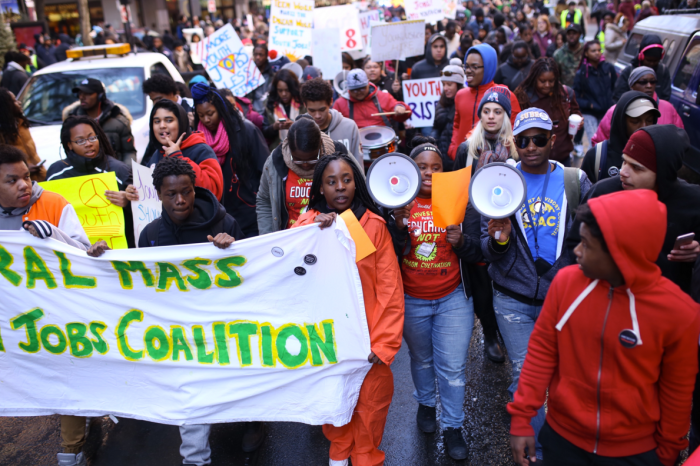Your inbox is full. Your desk is cluttered. Your phone is ringing. Your brain is fried. And it’s not even lunch — which you usually skip anyway.
What if you could press the reset button? Maybe get out of that swivel chair and stretch that body scrunched like an accordion, then close your eyes while a soothing voice coaxed, “Inhale on ‘just,’ exhale on ‘breathe.'” And, why yes, that is sandalwood and lime you smell, therapeutic scents to help lift your mood. RELATED:As kids crave quiet time, meditation goes mainstream In our alway-on, hyper-productive office culture, this is basically a workplace wet dream. It’s also a standard 30-minute session from Mindfresh, a company that strives to boost office productivity and help workers de-stress by, well, refreshing their minds. In New York and San Francisco, Mindfresh’s two outposts, startups and large corporate firms are bringing in their teachers (holistic practitioners and yoga instructors) to lead workday sessions. Each Mindfresh class consists of mindful movements — stretches for releasing the neck and shoulders, where many people hold tension and anxiety — and breathing exercises to help quiet the mind and focus attention. Sessions take place in conference rooms or even deskside, no workout clothes required. As workplaces spiral toward digital burnout, we’re experiencing a bit of a productivity backlash, suggests Mindfresh cofounder Jen Kluczkowski, who launched the company over two years ago. In other words, multitasking is out, and monotasking and mindfulness are in.
“People will put ‘I’m a great multitasker’ on resumes. But there’s a lot of different research showing that if you do five or six different things at one time, you make so many errors, it’s done carelessly, you have to go back and redo things, other people have to correct you,” says Kluczkowksi. “So now there’s more of a shift towards ‘How do we train our brains to do one thing at a time again with total attention?’” So what exactly are the benefits? Kluczkowski says they’re hard to quantify, but people leave feeling more focused and with greater clarity to work strategically.
What can be quantified, however, is how often Americans are plugged in. Americans check their phones 8 billion (yes, billion) times a day. The average office worker sits for about 10 hours a day, according to the Washington Post.And yet, says Kluczkowski, it’s not uncommon for many high-powered employees to actually be paranoid about taking breaks or getting up from their desks — for fear of not seeming busy enough. “There’s this concern that if we do need a reset, if we’re feeling overwhelmed and frantic and not like we’re producing your best work, if you’re to step away from your desk and actually do something like meditate, how are you going to look and be perceived by your coworkers and bosses? Everyone is terrified to do it,” she says. But before you think corporate culture is turning into Burning Man, think again. Companies are drawn to the practice as means of “performance enhancement” that boosts productivity in the long run. The concept is right in New Yorkers’ wheelhouse because it’s “a city full of overachievers.” “People want to be the best at everything they do,” says Kluczkowski.Including being mindful.
Why meditation makes you more productive than multitasking

iStock
























